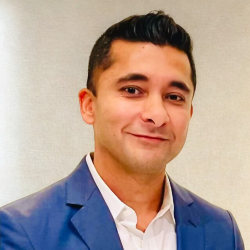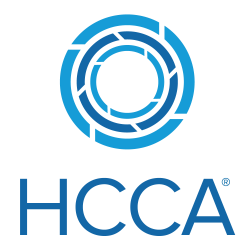New initiatives include Merck and ACRP collaborations
Taking action to increase and diversify the clinical research workforce is a high priority at Merck, known as MSD outside the U.S. and Canada. “Passively watching sites struggle to hire and retain talent is not an option for our industry,” says Kelly Clark, Head of U.S. Partnerships and Global Site Development, Merck. “Sponsors need to be part of the solution through our action and support of sites. Merck and the Association of Clinical Research Professionals (ACRP) are partnering on two pivotal new programs to grow and diversify the clinical research workforce for sites.”
Early Talent Training Program targets improved diversity
The first program aims to introduce the clinical research profession to high school and community college students by offering them ACRP’s Early Talent Training Program™, a comprehensive curriculum to prepare students for a career in the clinical research profession. “We are focusing on schools in minority communities near oncology clinical trial sites,” explains Clark. “Under-representation of racial and ethnic groups in the clinical research workforce contributes to the under-representation of diverse clinical trial participants, most notably in oncology clinical trials. Clinical research staff at sites should reflect the rich mosaic of the diverse communities they serve.”
“ACRP’s multi-week training program enables a more seamless onboarding of those who are new to clinical trials and who have the right skills to be successful in the clinical research profession,” states Clark. “The program also introduces students to relevant careers and sets them on a path to gain entry-level positions at clinical trial sites, many of which do not require a four-year degree.”
Fifty high school and community college students will have an opportunity to participate in the first Early Talent Training Program, starting in February 2023. Each student will be assigned a Merck mentor. “Mentors will prepare mentees to enter the workforce with the goal of creating a more diverse workforce for clinical trial sites,” notes Clark. “Mentoring may include advice on CV preparation, LinkedIn profile management, identifying job opportunities, and support with job applications and interview preparation.”
Foundational Study Coordinator training offered in underrepresented communities
The second program aims to support clinical trial sites located in and serving underrepresented communities, including historically black colleges and universities (HBCUs). The program offers a foundational training course for clinical research coordinators (CRCs). ACRP will provide its CRC Core Competency Foundations training and Clinical Research Knowledge Assessment™ as a certificate of completion. Four cohorts will be enrolled through 2023.
In another effort to address the need for workforce diversity, Merck supports the OneTen program – a coalition of leaders who are working together to cultivate economic opportunities for Black talent in America. Over the next 10 years, this program aims to “upskill, hire, and promote 1 million Black individuals who do not have a four-year degree into family-sustaining careers.”
OneTen partnership supports non-degreed Black Americans
Merck is one of the highest-tier partners with OneTen, including a multimillion-dollar commitment and a promise to provide 500 jobs and/or development opportunities per year for 10 years to non-degreed Black Americans. “This program offers opportunities to non-traditional recruits,” says Maria Craze, Executive Director, Global Data Operations at Merck. “Many functional areas at Merck are now taking a ‘skills-first’ approach to talent acquisition and development, focusing on skills rather than credentials, which can help advance diversity by reaching untapped talent among ethnic and socioeconomic groups,” states Craze. “While certain jobs clearly require educational credentials, there are many roles where it’s appropriate to be more attentive to skills and how a person can add value to a particular function within the company.”
“In data management, we have developed a system to assess the skills needed for success – such as the ability to recognize patterns in data, multi-task, think critically about data, and pay attention to detail, which are assessed through candidate exams,” adds Craze. “This approach is combined with in-person interviews to assess skills, experiences, and potential, and with the opportunity to spend time with people already in data management roles.”
Once recruited, there is a choice of development tracks, which might include applying for Merck’s educational assistance program for degree programs or data management certification. “This flexible approach is designed to enable these recruits to reach their full potential while adding value at Merck,” explains Craze. “We are interested in adding ACRP Early Talent Training for people recruited through OneTen. This will provide an appropriate foundation in clinical research to add to their transferable skills and potential.”
Merck encourages other life science companies to undertake similar efforts, helping generate a groundswell of people entering the clinical research workforce and advancing new therapies to the patients who need them.
Author: Jill Dawson



